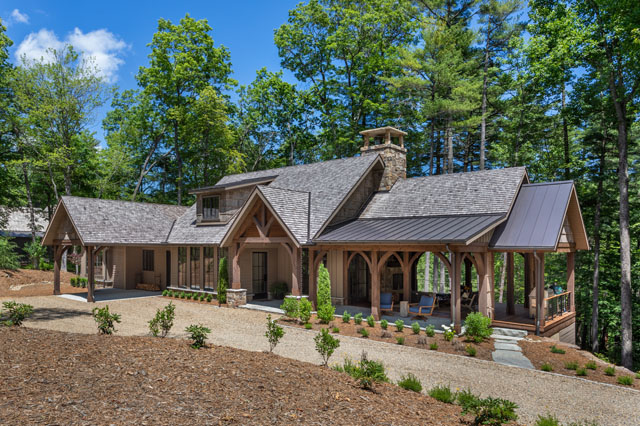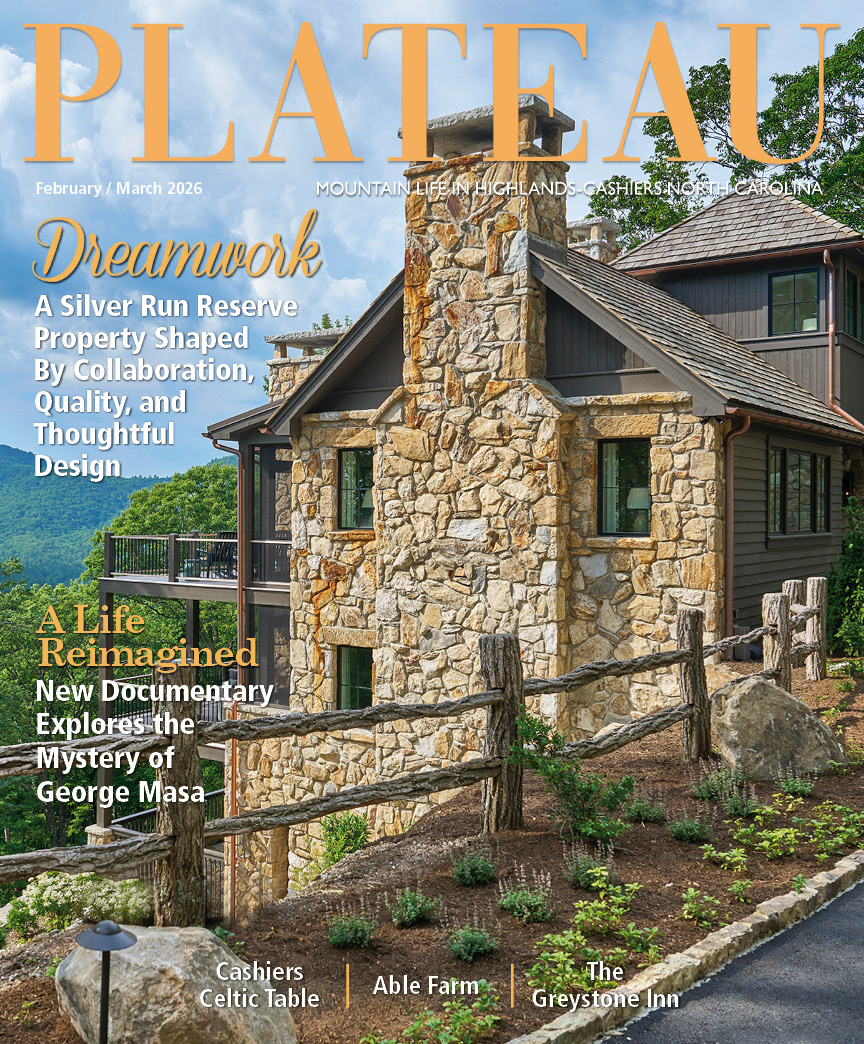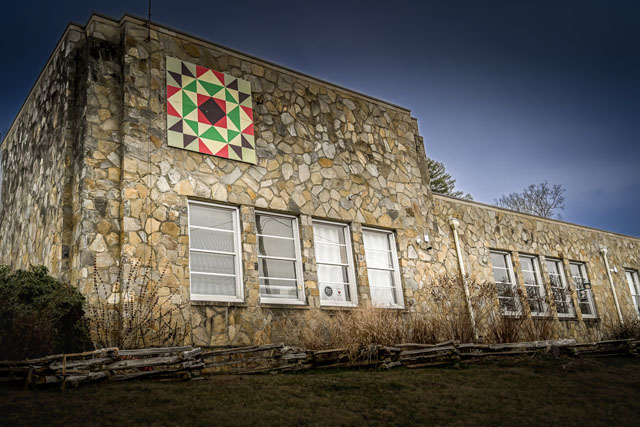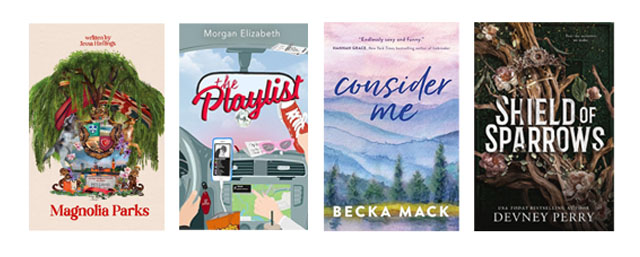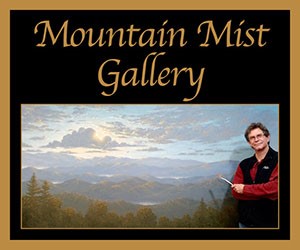Hit the Trail of Western North Carolina’s Literary Legacy
03 Jun 2025
Finding inspiration through history and literature
June-July 2025
Written By: By ANNA ROBERTSON

Most tourists know it for the leaves: the ever-changing vistas of gold and orange to bare limbs, and then vivid buds of spring that carpet the region. However, visitors often overlook another great "natural" resource of the state—literature. The state is filled with remarkable writers. Take a day drive through the mountains, and you may stir up a nest of good fiction written by authors who have, or currently do, call the Western North Carolinaregion home. Along the way, enjoy meeting and supporting our many local booksellers.
We begin the trip south of Asheville at the Carl Sandburg Home. Considered “The Poet of the People,” Sandburg moved to the farm a few years after he won the Pulitzer Prize. He produced a little over a third of his work at this home. The Carl Sandburg Home offers an annual student poetry contest and has offered writer-in-residence and writing workshops in prior years. The grounds include daily tours as well as hiking trails to inspire poets, readers, writers, and lovers of American literature. The grounds are currently in a phased reopening from Hurricane Helene, but most of the hiking trails are open.
The Grove Park Inn has a storied past of hosting all sorts of dignitaries and famous authors, including Margaret Mitchell and Alex Haley. F. Scott Fitzgerald famously rented two rooms here, one for writing and one for sleeping, in the summers of 1935 and 1936. It was a dark time for the author as he was deep into alcoholism, and his wife, Zelda, was hospitalized nearby in a psychiatric facility. Today, guests can stay in the Fitzgerald Room in the historic section of the hotel and share the view Fitzgerald had of guests arriving at the inn, a view he preferred to the mountains as he felt it made for better storytelling.
More recently, the inn was the setting for the award-winning debut novel by Cherokee author Annette Saunooke Clapsaddle, "Even As We Breathe." The story is set in 1942, when a young 19-year-old Cherokee boy takes a summer job at the Grove Park Inn. He finds respite in the abandoned room 447, a number combination chosen by Clapsaddle for its sacred meaning in Cherokee tradition. You can stay in room 447, located not far from the Fitzgerald Suite, and pick up a copy of the book in the on-site gift shop, Marketplace.
No literary trip to Asheville is complete without a visit to the childhood home of its native son, Thomas Wolfe. The Thomas Wolfe Memorial State Historic Site features the “Old Kentucky Home," depicted as “Dixieland” in his 1929 novel, "Look Homeward Angel." Tours are offered at half past each hour. Pick up a walking tour guide and walk in Thomas Wolfe’s shoes to visit 29 sites around Asheville and learn how the city is intertwined with Wolfe’s life. The site also offers special literary events, films, and discussions throughout the year. For more Thomas Wolfe immersion, take the short drive to Oakdale Cemetery in Hendersonville to see the angel statue Wolfe regularly referenced in his novel. Thomas Wolfe’s father sold the statue to the family to mark the plot.
While visiting Thomas Wolfe’s stomping ground, stop by the city’s premier independent bookstore, Malaprop’s, on Haywood Street. Offering an excellent curated book selection, the bookstore has a full schedule of events for readers and writers. They offer a great selection of signed copies of favorite local authors and a café. The business has a robust online selection for those seeking an alternative to the “one-click wonder” of online book buying.
The recent damage from Hurricane Helene can still be seen on the drive into the small town of Canton, home of Fred Chappell, the former Poet Laureate of North Carolina. Chappell published prolifically before his death in 2024. He wrote a fictionalized version of the town, and in his 1985 novel,"I am One of You Forever," describes the “hateful battering” of flooding. Though the town is on the mend, from Papertown Coffee to the downtown bookstore, Blue Moon Books, it is sadly in the shadow of the recently shut-down paper mill. The local Canton Branch of Haywood County Library commissioned a statue and courtyard garden honoring Fred Chappell that was unveiled on May 15th. Now more than ever, Chappell’s prescient words provide a blueprint for navigating a changing landscape for the people he dearly loved.
The small town of Sylva boasts a thriving downtown and multiple points of interest embedded in the fiction of Jackson County’s own David Joy. The statue in front of the Jackson County Library was featured in Joy’s latest book, "Those We Thought We Knew," which explores racism and the erasure of Black history. Also featured in more than one of Joy’s books is the classic restaurant “The Coffee Shop” on West Main Street that opens and closes early and is the perfect spot for eggs, grits, bacon, and ham before heading out on a hike or a day of fishing on the river. Harold’s Supermarket IGA, also featured in Joy’s books, still features its original sign and the old standbys that the ninety-nine-year-old grocery chain is known for.
But no literary visit to Sylva is complete without a stop at City Lights Bookstore and Café on East Jackson Street. This gathering space of the local literary crowd is a juggernaut for the region’s readers and writers. Known for its extensive selection of new and used books and a regional room of books and authors featuring history, heritage and fiction from the region, City Lights is a regular stop for authors and hosts special events year-round. Downstairs their acclaimed café offering breakfast and lunch with a selection of sweet and savory crepes with vegetarian and vegan options.
Western Carolina University, tucked in the valley of Cullowhee along the Tuckasegee River, was first known as “Two Sparrows Town” by the Cherokee. Among the many programs offered is the English Studies department, whose faculty includes Ron Rash, author of eight novels and 14 books of short stories and Poetry. Rash’s work is the touchstone of Appalachian Literature. But in addition, the faculty boasts non-fiction writer Jeremy Jones, poet Catherine Carter, and novelist Brian Railsback. Each spring, the department hosts a Spring Literary Festival celebrating prominent regional and internationally acclaimed authors like Lee Smith, Leslie Marmon Silko, and Pat Conroy. The festival is always free to the public. The 2026 Festival in early April delivered on its promise to be a who’s who of excellent writers.


